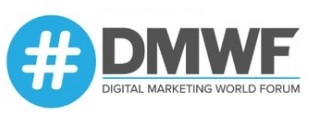
“When it comes to marketing and social media, data is really telling us the truth – and we always shy away from reading the data and using it because it might make us look bad,” explains Wiebke Leffers, senior strategist at social media platform provider Falcon.io.
“This ‘creative’ feeling of if something worked on social media or not is just outdated,” Leffers adds. “We really need to understand if we are achieving what we [want] on social media.”
It’s the age-old argument. Not all campaigns should be entirely data-driven, one person says at the meeting. We need to retain some human intuition and creativity, says another. But the truth is there’s no reason to say why you can’t have both.
Falcon.io is part of the Cision stable, having been acquired at the beginning of 2019. Earlier this year, to great fanfare, Cision announced its intention to acquire Brandwatch, the provider of digital consumer intelligence and – increasingly – social listening.
The combination of Brandwatch and Falcon.io will be a fascinating one. Indeed, while it’s still early days, Leffers is speaking with Mercedes Lois Bull, product marketing manager at Brandwatch, at the upcoming DMWF Global event on June 2-3. Building out a data-driven framework will be a key learning point during their session. “We can’t close our eyes anymore and not use the hard facts data is giving us,” Leffers adds.
This mindset is emphasised by Leffers’ day-to-day work and professional experience. Leffers likens her role at Falcon.io to that of a one-woman agency where she actively listens to the various challenges customers have and guides them through with their short- and long-term game plan. One example is that of a hypothetical customer who may have a global presence, but disconnected KPIs. Among Falcon.io’s clients are one of the largest office supplies providers, one of the world’s biggest car manufacturers and a global hotel group, to name three. A primary reason for this disconnection is a lack of definition – which again boils down to either avoiding or ignoring the data.
“So often, what I see is that social media is just a side piece of the marketing strategy,” admits Leffers. “It’s just a unit no-one really takes care of, so they don’t have anything defined, they don’t have any return on investment definition… they don’t really know what they are doing.”
Hence the need for the framework. “If we say we want to create awareness for our brand, and we don’t look at impressions or reach, and we don’t look at the external mentions of our brand, then we don’t know if we actually achieve this goal,” adds Leffers. “So I think everyone should have a data framework – otherwise, we’re just lying to ourselves.”
It is never as easy as that, of course. Marketers are used to shifting sands and changing landscapes, but the past 18 months or so has been a challenge by anyone’s standards, not only with Covid-19, but with the planned removal of third-party cookies.
MarketingTech has understandably been a hive of activity regarding its removal. Kumar Doshi, SVP of marketing at Lucid, wrote last month that ‘contrary to popular belief, it’s not necessarily all about ‘future-proofing’ marketing efforts, and it’s even less about preparing clients for alternate solutions.’
“What the cookieless future is about is capitalising on the data that brands and companies have long had in their arsenals to safely and best understand what matters most: the customer,” wrote Doshi. “First-party data is the ultimate lifeline – possibly even the holy grail – for the future of marketing in a cookieless world.”
For Leffers, it is vital for marketers to understand just how big these changes are – but that, at the same time, understand how much is beyond their control. “As marketers, we don’t have the power really to influence what is happening with the cookies and GDPR,” she says. “So we always need to adapt, and it’s a very fast moving environment. We need to understand… how to still target the right people if I just don’t have the information out there anymore?”
Aside from the upheaval and uncertainty caused by the pandemic, another trend became apparent. “I think [the pandemic] brought much more attention to social media, to marketing, but it also created this expectation of companies to put out their honest opinion; put out their struggles, their needs,” explains Leffers. With the rise of social justice movements – Leffers cites Black Lives Matter as a good example – we have seen the beginning of a long-term movement.
The underlying goal which links both a cookieless and post-Covid future is authenticity. It’s no good just paying lip service to it: for your data and your storytelling, actions speak louder than words.
Leffers notes there are several questions marketing departments must consider if they are not already. Who are we as a brand and what do we stand for? What do we want to achieve? How do we support our people? At DMWF Global, Leffers’ and Bull’s session will look to answer these questions. As the session details note, brands need to ‘think smarter about their audiences’ as consumer demand for ‘hyper-personalisation’ ramps up.
“I think that’s a very important thing,” she adds. “Being authentic as a company – not just sending out a marketing message, but really being an authentic brand, communicating with the audience on a level that is not just eCommerce.”
Photo by David White on Unsplash

Interested in hearing leading global brands discuss subjects like this in person?
Find out more about Digital Marketing World Forum (#DMWF) Europe, London, North America, and Singapore.






Its a important information.